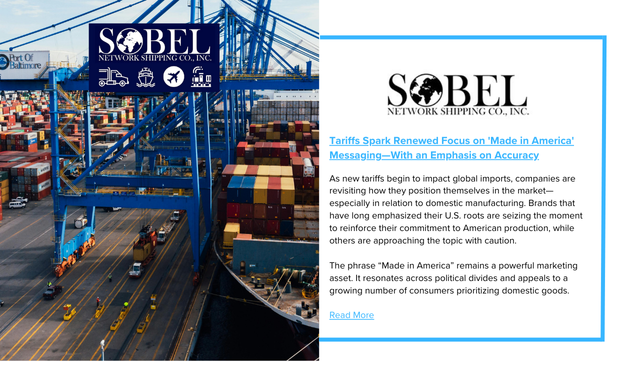As new tariffs begin to impact global imports, companies are revisiting how they position themselves in the market—especially in relation to domestic manufacturing. Brands that have long emphasized their U.S. roots are seizing the moment to reinforce their commitment to American production, while others are approaching the topic with caution.
The phrase “Made in America” remains a powerful marketing asset. It resonates across political divides and appeals to a growing number of consumers prioritizing domestic goods. But with this opportunity comes heightened scrutiny. Even companies with operations and assembly lines in the U.S. may still rely on globally sourced components—making it essential to carefully frame these claims.
Marketing and legal experts predict a surge in campaigns highlighting domestic assembly and employment. However, accuracy is critical. Regulators like the Federal Trade Commission (FTC) are expected to increase oversight on misleading or unsubstantiated origin claims. Terms like “assembled in the U.S.” or “designed in America” are becoming more common as brands navigate complex global supply chains.
Legal professionals caution that the FTC maintains a strict standard: to label a product “Made in the U.S.A.,” all or virtually all significant components must be sourced and processed domestically. Ambiguity or exaggeration in advertising language could result in costly penalties or consumer backlash.
In recent years, there have been notable examples of companies fined for inaccurately labeling foreign-manufactured products as domestically made. In one of the largest settlements to date, a major home goods retailer paid millions after the FTC found its product descriptions misleading—despite previously agreeing to correct its practices.
Consumer advocacy groups are also actively monitoring advertising language. These watchdogs emphasize that seemingly minor word choices, like using “assembled” instead of “built” or “manufactured,” can determine whether a company is operating within regulatory boundaries.
For marketers, this shifting landscape offers both a challenge and an opportunity. Those with transparent supply chains and verifiable U.S.-based operations may find that emphasizing their domestic roots offers a competitive edge—particularly in times of economic uncertainty and trade friction.
Industry consultants advise businesses to align brand identity with operational reality. Embracing transparency and specificity not only ensures compliance but also builds consumer trust. As digital shopping grows, clear country-of-origin information is more crucial than ever to help buyers make informed purchasing decisions.
Ultimately, the renewed spotlight on American-made products is a reminder: credibility, clarity, and compliance are essential ingredients in any successful marketing strategy.


